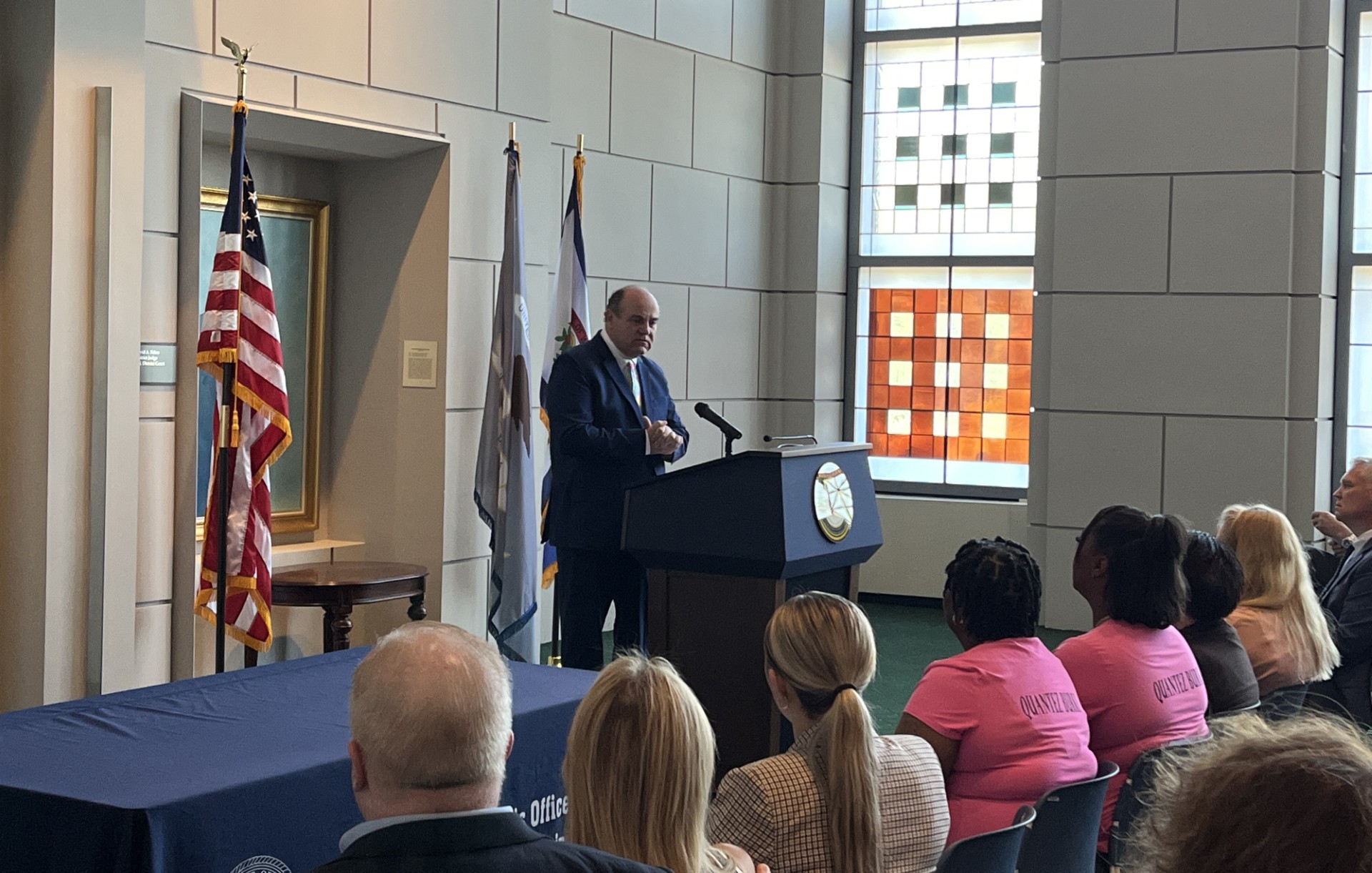The comment period has closed for the Mine Safety and Health Administration’s proposed rule on respirable silica, a major contributor to skyrocketing rates of lung disease among coal miners. The 49 relevant comments included a striking testimony from an anonymous coal miner sharing details of the ways in which current mine operators cheat on dust monitoring protocols.
MSHA issued the request for comment following an NPR/PBS Frontline investigation that found the agency had failed to adequately protect miners despite knowing that silica dust was contributing to an epidemic of black lung disease. Silica is a component of coal mine dust, and is released when miners cut into rock layers surrounding seams of coal. Particulates lodge in miners’ lungs for the rest of their lives, hardening lung tissue and preventing them from getting enough oxygen.
The miner submitted testimony through the Appalachian Citizens Law Center, which withheld the miner’s name out of concern for the safety of his job. The miner said he worked underground for eight years before getting an MSHA dust sampling certification in 2017.
“I only did the dust sampling for a few months because the mine I was working for appeared to be violating the rules so much that I was afraid they would get caught and I would be held responsible,” the miner wrote.
“I learned that the company would hang the CPDMs in the intake air,” the miner continued.
CPDMs refer to Continuous Personal Dust Monitors, devices designed to be worn by miners and to report real-time dust levels. Hanging the device in the flow of clean air would trigger its motion sensor, tricking the device into recording that a miner was wearing it while working while ensuring it only tracked clean air.
“This letter reflects what a lot of miners tell me when they come to me for black lung evaluations,” said Dr. Robert Cohen, director of the Mining Education and Research Center at the University of Illinois at Chicago. “They often report that they could get in trouble if they turned in what they called a bad sample, that they were told to or encouraged to make sure their dust samples did not exceed the exposure limits.”
In its request for comment, MSHA said it would consider stronger environmental controls and a lower exposure limit, but it also suggested it was open to the use of personal protective equipment, or PPE, such as airstream helmets, which miners say are too bulky and uncomfortable for frequent use.
“A lot of the mines buy what they want and they’re big and uncomfortable,” wrote commenter John Ormsbee, who identified himself as a current miner, speaking of the challenges of using personal protective equipment to meet silica standards. “Most make your glasses fog up and create a bigger hazard.”
Cohen submitted a comment on behalf of the American Thoracic Society, which supports a separately enforceable silica standard. “PPE is an unreliable method of controlling dust exposure,” Cohen said. “It makes no sense that we would allow PPE and therefore have less stringent air control requirements That would be a huge disservice, and it would go against our hierarchy of controls and our understanding of industrial hygiene that’s been in place for generations.”
The National Mining Association did not submit a comment, but has previously supported increased use of PPEs.
The Appalachian Citizens Law Center and the United Mine Workers of America both urged MSHA to adopt an emergency temporary standard to reflect the urgent need to address dust exposure for working miners.
Industry groups in associated fields, such as the Portland Cement Association and the National Stone, Sand and Gravel Association urged MSHA to regulate coal mining separately from other industries that also expose workers to respirable silica.
Roughly 20 percent of experienced Appalachian coal miners have some form of black lung disease. The National Institute for Occupational Safety and Health says that nation-wide, rates of black lung are higher than they’ve been since record-keeping began in the 1970s.
